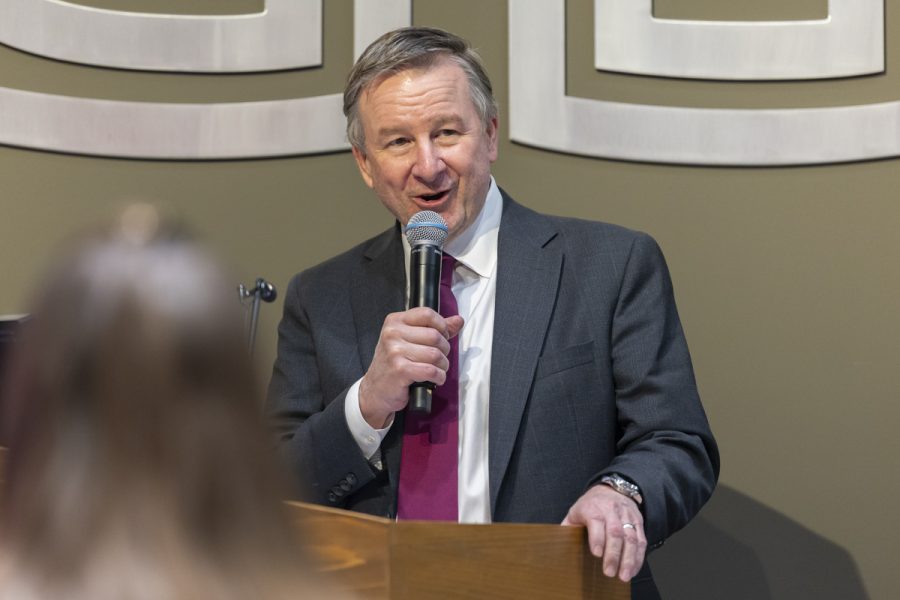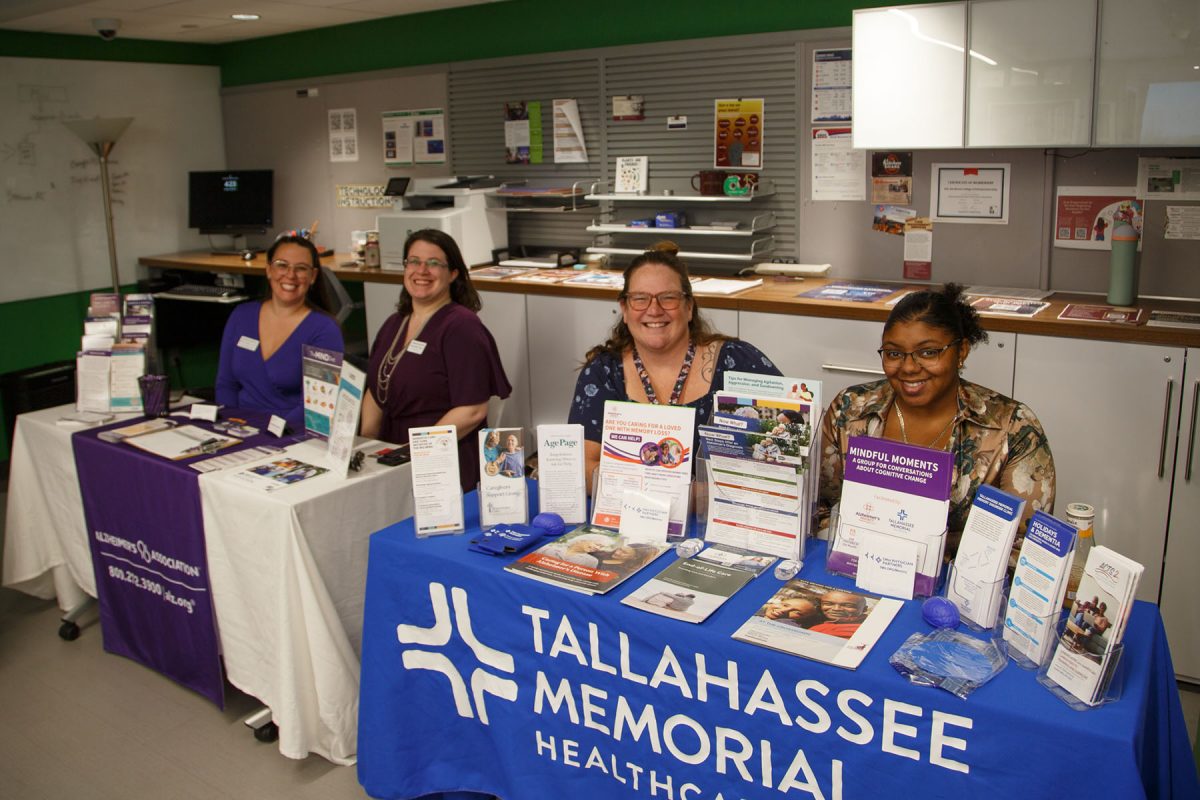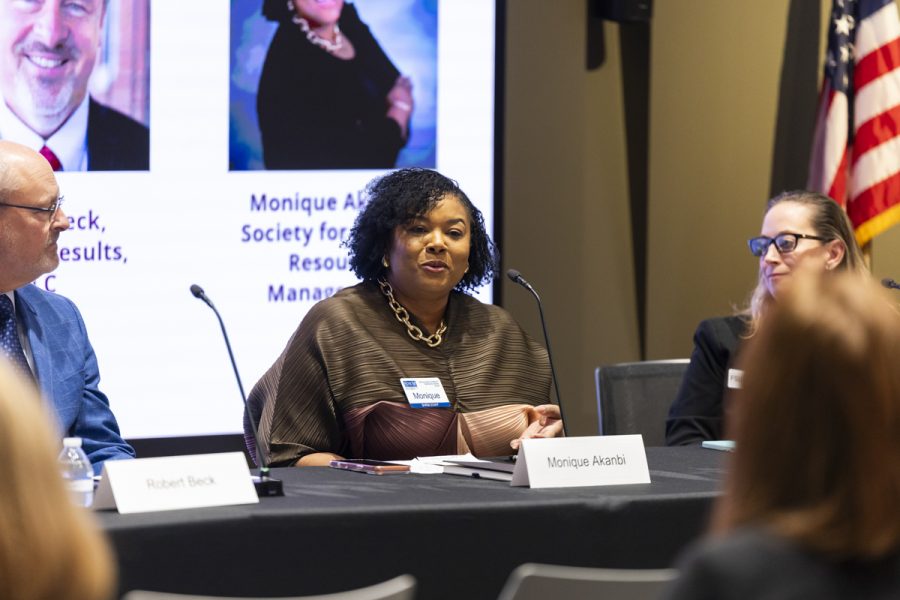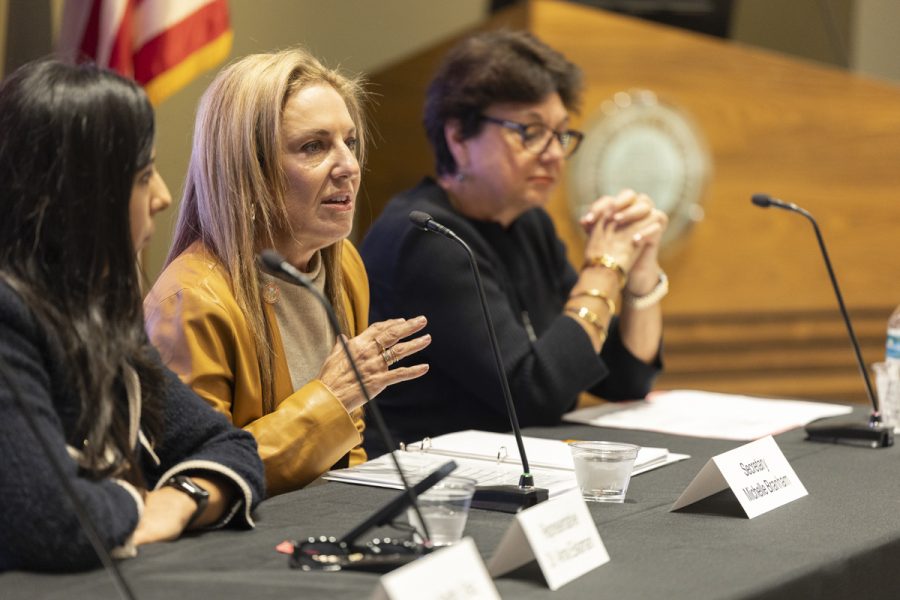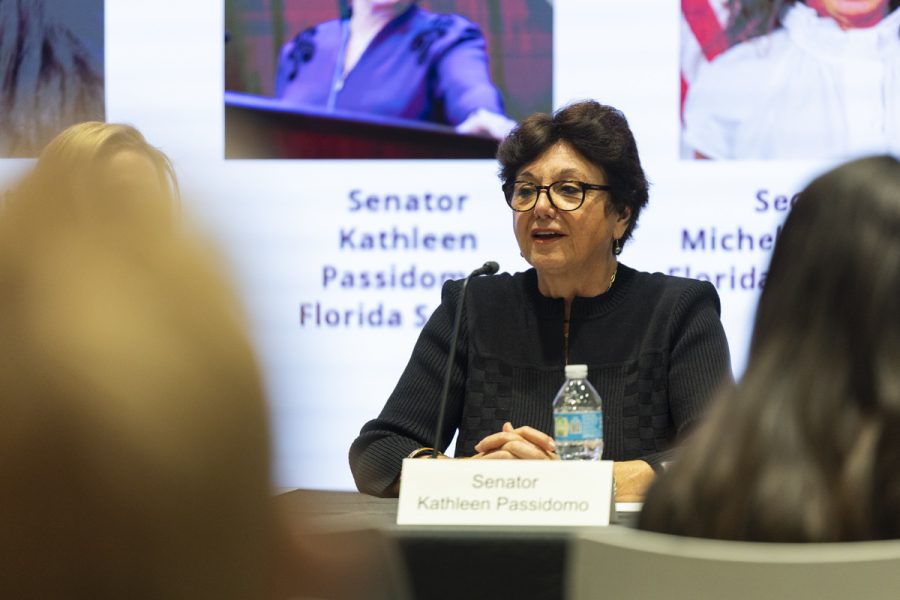More than 4.4 million adults in Florida are family caregivers who primarily provide unpaid and unsupported care to older parents, spouses and other relatives. As Florida's population ages, with one in five residents expected to be 65 or older by 2030, caregivers and families continue to need access to essential resources and information for support more than ever before.
To help address this need, AARP Florida and Florida State University's Claude Pepper Center organized the inaugural 2025 Florida Caregiving Summit. The event brought together leading policymakers, specialists in aging and disability services, and workforce development professionals to discuss the future of family caregiving in Florida.
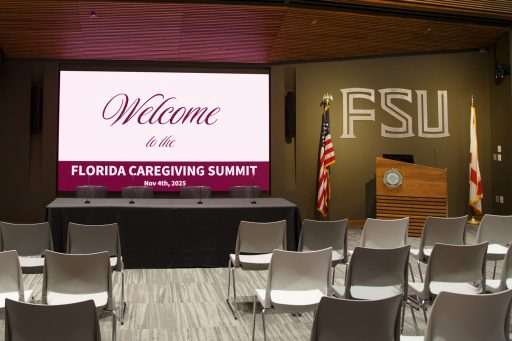
Attendees heard from FSU President Richard McCullough and FSU Claude Pepper Center Director Dawn Carr before attending the three panel discussions.
"The variation of what caregiving looks like is really broad," McCullough said. "The things that are going on here at this summit are very, very important - the policies, the organizations, the policymakers - you are the ones that are helping families to get these resources so they can get the care for their loved ones."
Held at FSU's Jim Moran Building in downtown Tallahassee, the Tuesday, Nov. 4 event included discussion panels and a resource fair, recognizing the essential contributions caregivers make to their families and the broader economy. More than 200 people also attended the event virtually.
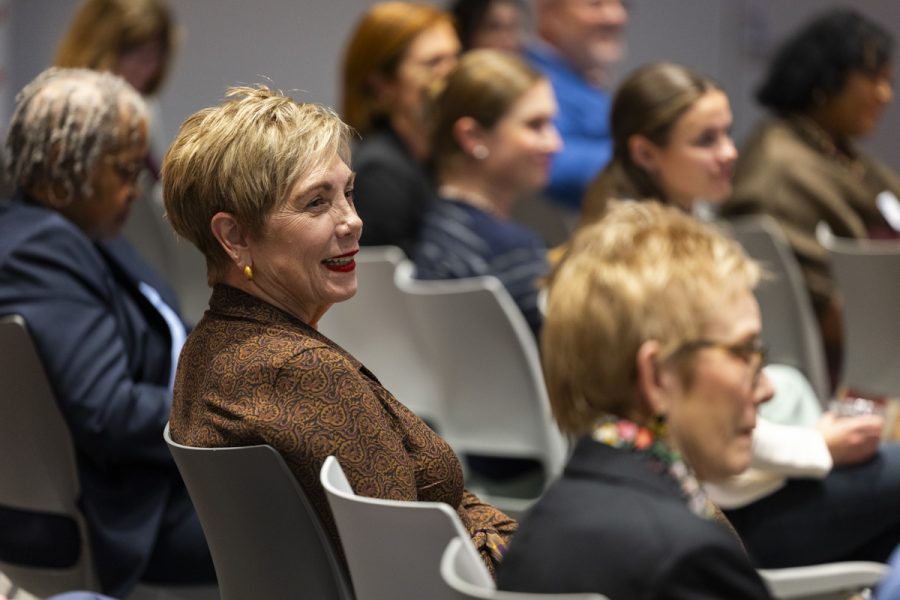
"I don't know that people are ever prepared when they become caregivers until they're faced with all of these very challenging moments where they have not only the physical demands of care, but also many of the financial demands," Carr said.
The first panel, "The Financial Impact of Caregiving," was moderated by Carr and included panelists Miles Taylor (Pepper Institute on Aging and Public Policy), Monique Akanbi (Society for Human Resource Management) and Robert Beck (PinPoint Results, LLC). The panel discussed topics such as caregivers leaving or taking extended leave from the workplace, financial resources available for things like home modifications and care supplies as well as some of the unexpected financial costs that come with caring for a loved one.
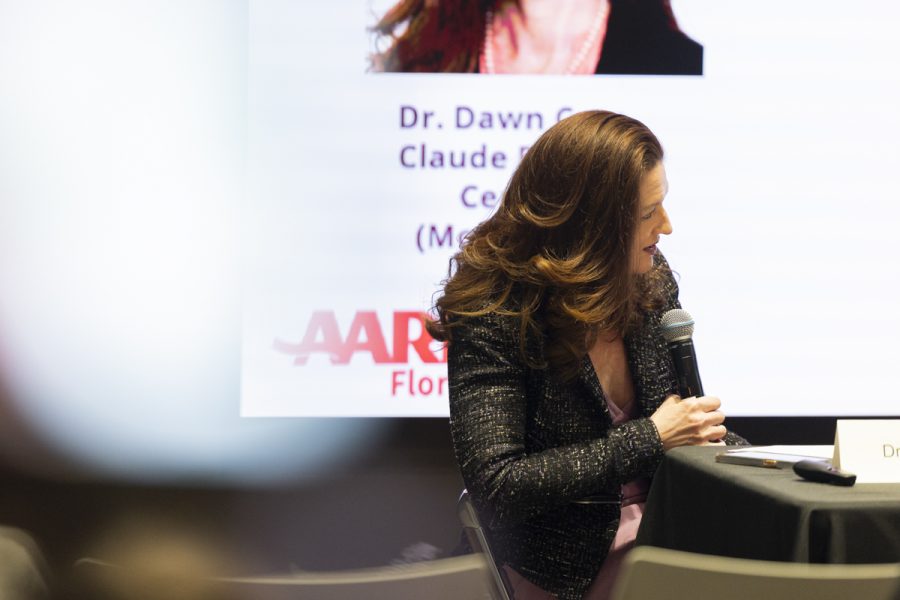
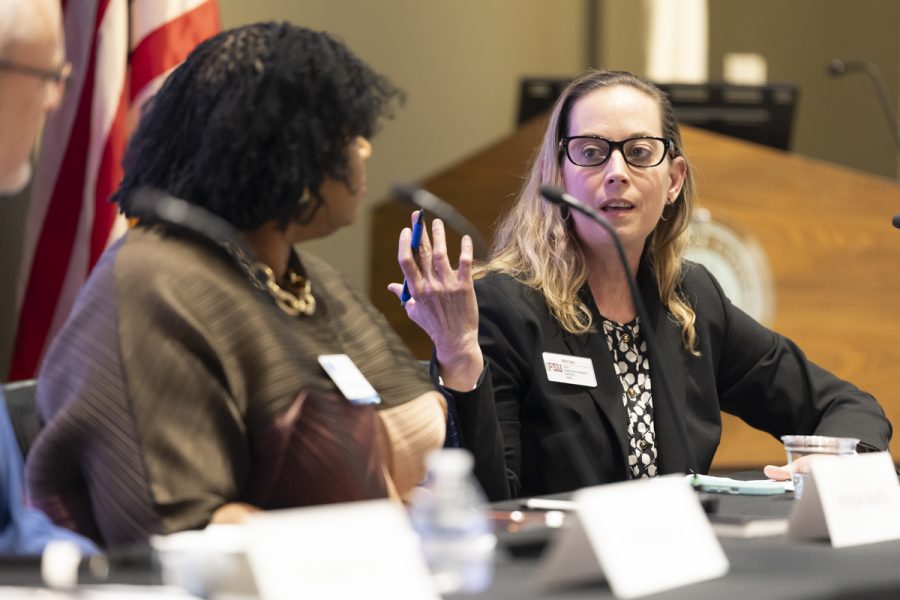
"We often think about the out-of-pocket costs that come with being a caregiver and caring for a loved one, like helping pay for medical care, but there are other out-of-pocket costs that we don't think about," Taylor said. "Things like home modifications or having respite care - those things can really add up. But there are often also opportunity and indirect costs for caregivers."
The second panel, "Supporting Family Caregivers Through Policy," was moderated by Zayne Smith, Esq. (AARP Florida) and included panelists Representative Anna Eskamani (Florida House of Representatives), Senator Kathleen Passidomo (Florida Senate) and Secretary Michelle Branham (Florida Department of Elder Affairs). The conversation covered how policymakers collaborate to create policies for caregivers and Florida's aging population and discussed future implications of an aging demographic in Florida.
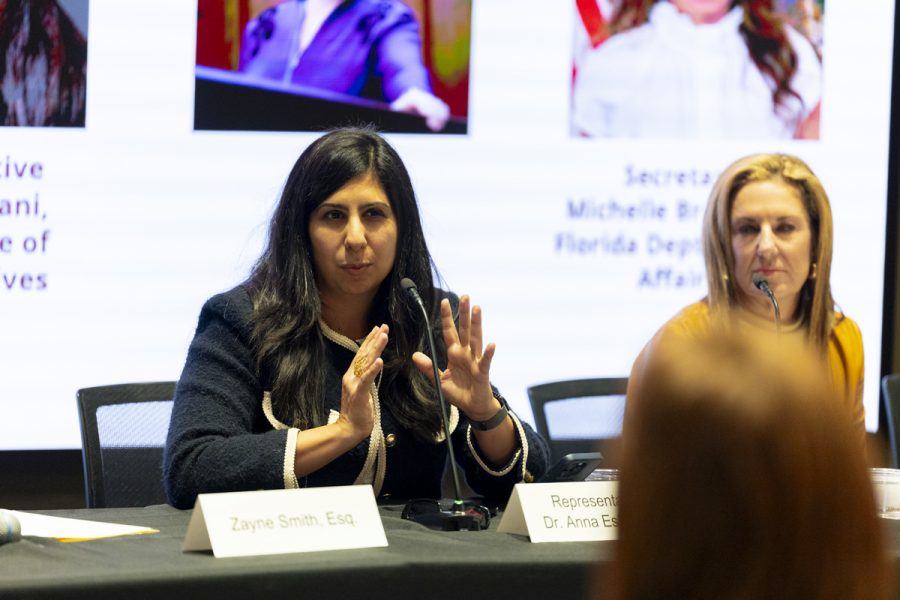
"The Department of Elder Affairs always says we want to live well and age well, but what does aging well look like?" Branham said. "And that's a little bit of planning - so how do we wraparound support services not just for the people living with chronic conditions, but also their caregivers so that we're set up for success."
Eskamani and Passidomo discussed their experiences and insight into working across the aisle to further policies and support for caregivers across the state.
The third and final panel, "The Florida Caregiving Landscape," was moderated by Kip Corriveau (Metropolitan Ministries) and included panelists Alexis Jacobs (Alzheimer's Association), Mary Ellen Philbin (Share the Care) and Whitney Scott (TMH Memory Disorder Clinic) discussing resources and support available through public and private organizations across the state to support the elderly, disabled and their families.

